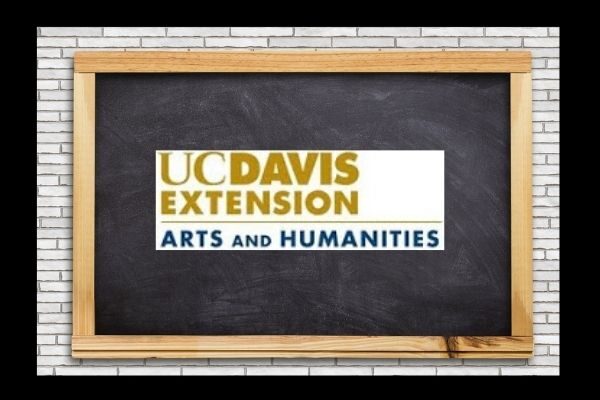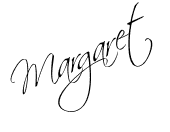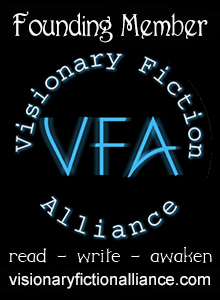
Note to Reader: Unfortunately, since I wrote this post, the creative writing program through UC Davis Extension is no longer being offered.
I’ve done my share of college writing. I’m a college graduate after all. But when I started writing fiction instead of college essays and term papers, I stepped into a whole new world.
Many fiction writers (especially those of the commercial variety) write by instinct, and then perfect their craft through trial and error, often referred to as “writing by the seat of the pants.” That means no outlining and definitely no creative writing classes. Some claim to have never studied a book on craft. Their guide? Reading literature, of course. They learn by osmosis. Good stories, read over the years, is all they need to make a go of it.
So I tried it on my own, and progressed.
Slowly.
But I had no way of gauging if my writing was any good.
Sure, my family and friends liked my work. Heck, they loved it. But I wanted to know if my work was publishable.
So I caved.
Yep, I purchased books on writing, a hundred of them, and then a hundred more. I joined writing groups, critique groups and writers’ organizations, even went to writers’ conferences.
And I wrote and wrote and wrote.
Eight years and four novels later, I needed more.
Though I was warned against them, told they’d constipate my style, bury my voice in literary mumbo-jumbo, I decided to take a creative writing class. College level, of course. Nothing else would do.
And I’m glad I did.
Let me introduce you to the UC Davis Extension Creative Writing Program. “From quarter-long creative and nonfiction writing courses to the acclaimed Tomales Bay Workshops, the UC Davis Extension’s writing program gives you the tools, techniques and writing community you need to take your writing to the next level.”
I edged in easy, took Reading Contemporary Fiction as a Writer, where we read some Toni Morrison and Dave Eggers and admired and emulated. Next, I took Tools of the Writer’s Craft, and I was hooked. Yep, “hook, line and sinker” (though every self-respecting teacher will warn you not to use clichés). Then came Advanced Fiction: Writer’s Craft Workshop (which I took twice), followed by, Dialogue and Point of View, Style and Structure and Novel Craft Workshop.
In what seemed like no time (July 2008-March 2010), I’d earned UC Davis Extension’s Creative Writing Certificate. I was their first graduate, “the first one over the line.”
The class lectures covered the basic stuff: building scenes, metaphor, detail, point of view, characterization, plot, dialogue, etc., followed by lively, thought-provoking discussions. It’s amazing what you discover about yourself and your writing when you spend time with highly motivated, articulate and interesting writers.
My classmates included a court recorder, a deacon, a school dean, a lawyer, a psychiatrist, a mayor, a teacher, a farmer and a newspaper editor, to name just a few.
The in-class writing exercises and homework assignments definitely helped us generate new material and polish our writing skills, but, in my opinion, the true value of the classes was the workshopping. I was blown away by the quality of the comments made on my work. The teacher and my fellow students (usually twelve to sixteen, depending on class size) pointed out manuscript strengths and weaknesses that I would never have discovered on my own.
Sure, it was tough at times. Criticism is never easy. But we were all in this together, and no one was spared. Anyway, it’s through constructive criticism that we learn, right? Not tepid compliments.
An added bonus to workshopping is that you become a better critiquer. And when you learn what to look for in other people’s writing, it’s easier to find it in your own.
The teachers at UC Davis Extension are flexible. They want you to do your best. And, considering that the classes are Pass/Fail, this gives you a tremendous amount of freedom to explore and express yourself.
Some of the teachers allow you to use previously written material, some want you to come up with something fresh, and others allow you to adjust the homework assignments to fit your needs. They know that the students are highly motivated and produce a lot of material. The weight of commenting on all the homework assignments is tremendous, but the teachers do an impressive job.
By the end of the Creative Writing Certificate program, I had a good grip on my writing strengths and weaknesses. I also made some interesting discoveries, that I can write humor, for instance. One teacher wrote, “You’re pretty funny! I hope you can hear me laughing! Hysterical laughter!”
Another discovery: There’s room for commercial fiction in this college program. Yep. Check out what one of my teachers wrote. “Your novel has undeniable commercial appeal, and what I hope you take from the class is that you can maintain that commercial appeal and still provide a depth to its scope that won’t shut readers out. This is a novel worth fighting for. So please don’t tire in the fight.”
Did I tell you I really liked the instructors?
Students like me are needy and greedy, and I’m sure I left some of my teachers exhausted in the end. But I will be forever grateful to Kate, Susan, Naomi, Jodi and Shawna for helping me along the way. Lessons in writer’s craft books are hard to internalize and apply. Sometimes it takes experienced outsiders to crack the code. These classes, the teachers, and my fellow students did this for me.
During the course of the program, I was able to workshop and revise nearly my entire novel, Between Now and Forever, and as a result, I entered it in the Amazon Breakthrough Novel Award Contest, where it progressed to the quarter-finalists (250 out of 5,000 entries). It also won a Publisher’s Weekly review.
How good is that?
As always, thanks for stopping by,

